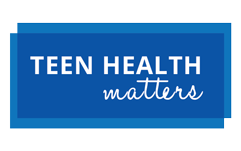
 As you hit your teen years, you may be able to start making your own decisions about a lot of things that matter most to you. You may choose your own clothes, activities, and friends. You may also be ready to make decisions about your body and health.
As you hit your teen years, you may be able to start making your own decisions about a lot of things that matter most to you. You may choose your own clothes, activities, and friends. You may also be ready to make decisions about your body and health.
Since your teenage years are a time where you’ll learn physical health habits that often carry into adulthood, it’s important to learn how to make healthy decisions about what you eat and drink, how active you are, and how much sleep you get.
Teen Health Matters is a great place to start! We’ll provide you with great info and tips on how to maintain good physical health! Check out the tabs to the left for all you need to know, and if we’re missing anything, feel free to drop us a note to let us know!
 Puberty…ugh! That dreadful word! Between the weight gain, pimply face, weird smells coming from your body, and growing hairs (everywhere!), puberty might not seem like the most exciting time in a teen’s life. You may have even heard older siblings, friends, and people in the media talking about their “horrible” puberty experiences.
Puberty…ugh! That dreadful word! Between the weight gain, pimply face, weird smells coming from your body, and growing hairs (everywhere!), puberty might not seem like the most exciting time in a teen’s life. You may have even heard older siblings, friends, and people in the media talking about their “horrible” puberty experiences.
While this time of your life, may not be the most exciting, just remember that this is a very NORMAL phase of life and that it will end. Puberty simply refers to that time when your body reaches a certain age and your brain releases a special hormone that starts the changes of puberty. These new chemicals are simply moving around inside your body, turning you from a teen into an adult with adult levels of hormones.
Getting through puberty
Let’s get real- our bodies are going to do some funky things during puberty. But there are plenty of ways we can get a handle on all that’s changing!
Growth Spurt:

Your body is growing, and it may be happening really fast! When you enter puberty, it might seem like you keep outgrowing your clothes.Many of your clothes will get shorter- but that’s because you’re experiencing a major growth spurt! This spurt may occur for about 2 to 3 years- but don’t worry!
Once you’ve reached the end of that growth spurt, you can be relax knowing that this will typically be your full adult height. Once you’ve reached that height, I suggest you go enjoy a much needed shopping spree!!
Gaining Weight:
As your body grows taller, you will gain weight. It’s almost inevitable! Guys- your shoulders may grow wider and your body more muscular. You may also experience a lengthening and widening of the penis and the enlargement of the testes. Girls- you may become a little curvier, gaining weight on the hips and your breasts may start to develop, as well. Remember: these changes are completely normal and means that your bodies are developing as expected during puberty. As long as you maintain a healthy diet and exercise regularly, you shouldn’t have to worry about gaining any unwanted weight.
Body Hair: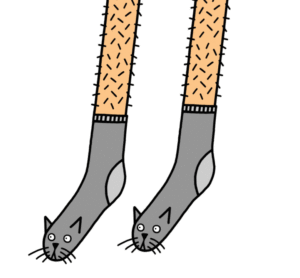
During puberty, you may begin to notice hair growing in places it didn’t grow before. Hair under your arms and near (and on) your genitals is to be expected. Guys may also start to grow hair on their faces. This hair may first appear light and sparse (maybe even patchy!); but as time goes one, you can expect the hair to grow thicker, long, and even darker. To help manage your hair growth, invest in some disposable razors or ask your parents to purchase a few hair removal products.
Acne:
Oh no! Is that ANOTHER pimple?! Yep- another one! The small bumps that begin to form on your face are called acne, or pimples, and are triggered by puberty hormones. Acne usually starts around the beginning of puberty and can last throughout the teen years (and sometimes longer!). You may notice pimples on your face, your upper back, and even your chest. Some may be really small, and others may seem so large that you’ll think you have a tiny unicorn horn growing from your face! But don’t worry- I promise it’s not a unicorn horn. And again, it’s completely normal.
There are plenty of things you can do to help combat these tiny bumps! For example, keeping your skin clean is a big help! Start with an over-the-counter facial cleanser. You can even maintain a facial routine which includes washing your face twice a day with warm, soapy water, applying a spot treatment, and applying an “oil-free” moisturizer. Your doctor will be able to offer other suggestions for clearing up acne, too.
Body Odor:
P-U! What’s that Smell?! Gym class has ended and you may begin to wonder what that weird smell is coming from your armpit…or even from your pubic area! It’s called body odor and everyone gets it! Puberty hormones affect glands in your skin that make chemicals. Unfortunately, those chemicals don’t smell like a bouquet of fresh roses!
The good news is that there are plenty of things you can do to help fight the odor. For example, consider showering daily. For some, showering twice daily (once in the morning before school and at night). Using deodorant every day, especially one with antiperspirant, can help keep body odor at a minimum, too. Finally, invest in a nice, light fragrance- body spray, essential oil, or a lightly fragrant lotion may also help make you feel a little less stinky.
Everyone Grows at Their Own Pace:
While puberty happens to EVERYONE, it’s important to remember that everyone grows at their own pace. We all develop in different ways at different times. You may notice some of your friends may be a little curvier than you. Your best friend from school may have a full mustache, and you’re still waiting for the first hair to grow on your face. Maybe you’re the taller than all of your other girlfriends. Or maybe your voice is still a little squeakier than you buddies.
Just remember, no two people are exactly the same- even twins may have slight differences in their growth and development! But eventually, everyone catches up. Be encouraged that your uniqueness is what makes you special. Your uniqueness is what makes-YOU!
Calories: How the body uses energy
Your body needs energy for everyday function and growth. Calories from food and drinks give you that energy. Throughout the day, you use energy up energy to think and move, so you need to eat and drink to stay powered up.
How many calories does your body need?
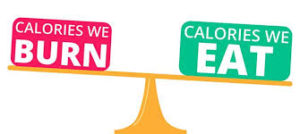 Different people need different amounts of calories to be active or to maintain a healthy weight. Some determining factors include your gender, your genetic makeup, age, height and weight, and your activity level.
Different people need different amounts of calories to be active or to maintain a healthy weight. Some determining factors include your gender, your genetic makeup, age, height and weight, and your activity level.
In it’s simplest form: the more energy you burn, the more calories you’ll need to eat!
Healthy eating involves taking control of how much and what types of food you eat, as well as the beverages you drink.
Read below to learn more about the foods and drinks you should consume to maintain a healthier lifestyle.
Fruits and Vegetables:
 I know a heaping pile of broccoli or peas may not be the first thing you put on your plate at dinner, but did you know that each meal should consist of making at least half of your plate fruits and vegetables? There are lots of nutrients in vegetables -like calcium, fiber, and vitamin C- that your body needs.
I know a heaping pile of broccoli or peas may not be the first thing you put on your plate at dinner, but did you know that each meal should consist of making at least half of your plate fruits and vegetables? There are lots of nutrients in vegetables -like calcium, fiber, and vitamin C- that your body needs.
You can get these from eating dark leafy greens (collards, kale, and spinach), and other red and orange vegetables (carrots, pepper, and squash). Simply adding tomato and lettuce to your sandwich is an easy way to get more veggies in your meal.
Grains:
Dietary fiber from whole grains helps reduce blood cholesterol levels and may even lower risk of heart disease. Fiber is also important for healthy bowel function and helps reduce constipation.
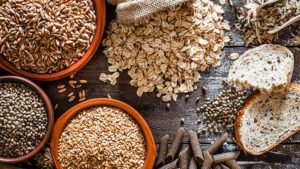
B vitamins found in whole grains can help the body release energy from protein, fat and carbohydrates.
So instead of picking up that sugary cereal or making a heaping bowl of stir-fry with white rice, opt for brown rice, oatmeal, and even whole-wheat bread. I promise, it’s not just good for old people!
Protein:
Protein is needed for the growth and repair of muscles and tissues. It’s also needed for the production of enzymes and hormones. As a teen, you are experiencing rapid changes in your development. This means that you’ll need they’ll need to eat enough food to meet your daily energy needs.
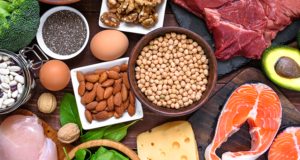
Feel like you need an extra energy boost? When calories are too low, the body uses protein for energy, leaving less for its other roles. Consider eating low fat or lean meats like turkey or chicken, and other protein-rich foods, such as seafood, egg whites, beans, and nuts. Tofu is a great protein option for vegetarians!
Dairy: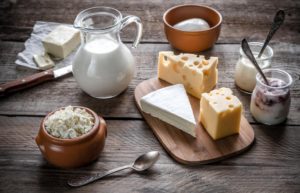
During adolescence, you are going to have a major growth spurt. That is why it is important to eat lots of calcium as it is the main mineral that strengthens bones. Did you know that almost half of the bone mass a teen will have for the rest of his life is made during adolescence.
So build up those strong bones with fat-free or low-fat dairy products. Oh! And if you can’t digest lactose (lactose intolerant: the sugar in milk that can cause stomach pain or gas), you can always choose lactose-free milk or soy milk with added calcium. Not a fan of milk?
That’s okay! Fat-free or low-fat yogurt or cheese is also a great source of calcium.
Fats:
Good fats vs. bad fats- yes, there’s a difference! Fat is an important part of your diet as it helps your body grow and develop. Rumor has it that it may even keep your skin and hair healthy (BONUS!). But because fats have more calories than protein or carbs, some are not considered healthy.

Oils that come from plants and are liquid form at room temperature, are better for you than solid fats (such as butter, stick margarine, and lard) that are solid at room temperature. Foods that contain healthy oils include avocados, nuts, salmon and even tuna fish. Unhealthy fats (such as fatty meats and dairy products made from whole milk) often contain saturated and trans fats, which are not healthy for you.
These may include the obvious, yet admittedly, delicious foods such as fried chicken, burgers, or french fries (mmmmmmm…frennnccchhhhh frrriiiieeeeesssss). So swap out that juicy, fatty, burger and opt for a turkey sandwich instead. Even a veggie burger can be a yummy and healthy option!
Sodium:
Sodium, which is mostly found in salt, is needed for your body in small amounts. Too much sodium from your foods and drinks can raise your blood pressure, which is unhealthy for your heart and your body in general. I’m sure you’ve heard your parents or grandparents taking about their blood pressure, but even as a teen, it’s important to pay attention to your blood pressure and heart health now to prevent health problems as you get older.

Experts suggest that we consume no more than 1 teaspoon of sodium a day- which can be tricky as it includes the salt in already prepared food (which you can’t always easily measure), as well as the salt you add when cooking or eating your food.
In order to reduce your sodium intake, consider choosing unprocessed foods like fruits and veggies instead of canned or packaged foods. If packaged foods are your only option, check the amount of sodium listed on the Nutrition Facts label and choose items with lower amounts of sodium. If using canned vegetables, remember to rinse them with water to remove any extra salt. And when cooking, add herbs and spices to enhance your meals instead of salt.
Added Sugars:
 Some foods, like fruit, are naturally sweet. Other foods, like ice cream and baked desserts, as well as some beverages, have added sugars to make them taste sweet. These sugars add calories to your diet.
Some foods, like fruit, are naturally sweet. Other foods, like ice cream and baked desserts, as well as some beverages, have added sugars to make them taste sweet. These sugars add calories to your diet.
Reach for a piece of fruit instead! I know, I know…who doesn’t want to eat those delicious cookies your mom just baked or those perfectly glazed donuts? Trust me…I do, too! But consuming less added sugar is not only good for reducing calories, it may also lower your risk for diabetes…and even cavities (your dentist will thank you later!).
GET MOVING
As teenagers, you will experience many physical changes with your body. You will gain weight and grow in height. While the foods you are important to your overall health and wellness, staying physically fit and active can help you avoid health problems and other complications in the future.
 Make physical activity a part of your daily life, whether you play sports, take physical education (PE) classes in school, go for a walk with your friends, or ride your skateboard. Regular physical activity can not only help you manage your weight, but also help you maintain stronger muscles and bones and be more flexible.
Make physical activity a part of your daily life, whether you play sports, take physical education (PE) classes in school, go for a walk with your friends, or ride your skateboard. Regular physical activity can not only help you manage your weight, but also help you maintain stronger muscles and bones and be more flexible.
THE PHYSICAL BENEFITS
As teens, we tend to become increasingly concerned about our overall appearance and figures. Although physical activity won’t do much to help with the eye shadow color you chose to wear with your green dress or whether or not your shape-up is cut clean, staying active can instead reduce the likelihood of obesity and other weight-related problems. Combining physical activity with a healthy diet can also reduce the risk of heart disease and possibly increase your overall lifespan. I know staying in bed late sounds AMAAAAZZZZIIIINGGGGG, but there are so many different physical activities that you can partake in at school, at home, and with friends to maintain your physical fitness. In fact, many everyday tasks can count as physical activity.
THE MENTAL BENEFITS
In addition to helping the body, researchers have found that physical activity has positive mental effects,as well. When you exercise, endorphins are released within the brain and nervous system. Endorphins are pretty cool because they are hormones that actually promote happiness and good feelings. So if you’re feeling a little stressed out, depressed, or have other mental health issues, try exercising a bit! You may find yourself feeling a little better.
Tips to Staying Physically Fit
- You should be physically active for at least 60 minutes a day . Most of the 60 minutes or more of activity a day should be either moderate or intense activity.
- Engage in aerobic physical activity. This is any activity that makes you breathe hard or speeds up your heart rate. These activities could include running, dancing, or riding your bike.

- Try to incorporate intense physical activity at least 3 days a week.
- For a more moderate workout, try brisk walking, jogging, or biking on flat streets or paths.
- Activities add up! You don’t have to do your 60 minutes a day all at once. Go for a short walk to your friend’s house after breakfast, go swimming in the afternoon with your sibling, and chase the dog around the backyard in the evening.
Getting Enough Sleep
Let’s face it- sleep is vital to your well-being! In fact, it’s just as important as the food you eat, the water you drink, and the air you breathe! But sometimes it’s hard to get enough sleep. Research recommends that teens get at least 8-10 hours of sleep a night. Yes, you read that correctly. I said 8….to….10 hours! But let’s factor in the job you have, the copious amounts of homework you got today, after-school activities, and helping your parents take care of your younger siblings- getting that much sleep seems downright impossible! But it’s not something you want to do without!
Why Sleep Is Important
During sleep, your body functions and brain activity occurs. Getting enough sleep also helps you focus and do well in school, drive and work safely, and fight off illnesses. Getting enough sleep is also one of the best ways we can protect against depression and other mental conditions. That’s because the structures in the brain that support our body’s natural antidepressant (serotonin) are built and re-built during sleep.
Consequences
Have you ever been so tired, that instead of laughing and having a good time with your friends, it feels like they’re just getting on your nerves? Research found that not getting enough sleep may make you moody and irritable, making it hard to get along with your family and friends.

Lack of sleep can also cause you to perform poorly in school or at your job. Let’s get real- how many of us have been so tired at school that all it sounds like your teacher is saying “blah blah blah..blah blah…”? Yea, I’ve been there. Or you read a full chapter from your history textbook, but afterwards, you can’t remember a single thing about what you just read. Trust me- I’ve been there, too! Not getting enough sleep limits your ability to learn, listen, concentrate, and even solve problems. So rest up while you can! You’ve got an exam in the morning!
 These resources can help you learn how to improve your health.
These resources can help you learn how to improve your health.
General Resources
National Eating Disorders Association (NEDA)
NEDA supports individuals and families affected by eating disorders and serves as a catalyst for prevention, cures and access to quality care.
800.931.2237
Learn about the long-term impact of sugary drinks, empty calories, and the potential for obesity.
Teen/Adolescent Physical Health
Get the basics on your changing body-from head to toe.
Find services for food, housing, transportation, health, education, employment assistance, and more.
Food Assistance
Need help getting enough healthy food for yourself or your family, visit these sites and talk to your parents about whether you qualify for assistance.
FISH: Howard County Food Bank
9385 Gerwig Lane J, Columbia, MD 21046
(410) 313-6185
Maryland Food Bank
4551, 2200 Halethorpe Farms Rd, Baltimore, MD 21227
(410) 737-8282
Distracted Driving
Teen drivers are some of the most susceptible people to the dangers of distracted driving. In the face of so many distractions, driving more responsibly is not just important—it very well could be life-saving. Check out the resources below for more info!
Centers for Disease Control (CDC): Distracted Driving
Learn about the types of distractions, risk factors, and prevention of distracted driving.
National Highway Traffic Safety Administration (NHTSA): Distracted Driving
Discover more about distracted driving, its consequences, and what’s being done nationally to fight against distracted driving.
NHTSA: Famous Last Words Campaign
In 2015, 3,477 people were killed, and 391,000 were injured in motor vehicle crashes involving distracted drivers. If you text and drive, your next message may be your last. Check out the NHTSA’s ‘Famous Last Words‘ campaign video
